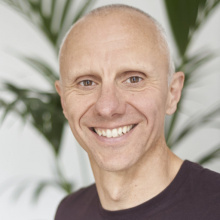Food insecurity and obesity: Unpacking the paradox

daniel nettle
Institut Jean Nicod (UMR 8129), Ecole Normale Supérieure, Paris, France
Link to seminar: https://umontpellier-fr.zoom.us/webinar/register/WN_hwJ3OA2xRN-kiZYRNRp5mg
Food insecurity describes the state where an individual’s access to food is restricted or uncertain. In humans, at least in Western countries, people who suffer food insecurity are fatter than those who do not. Social scientists find this paradoxical: the people with the worst access to food are the heaviest. I argue that, from an evolutionary perspective, this is not paradoxical at all. The adaptive function of fat is to provide a buffer against shortfall, and so the greater the risk of shortfall, the bigger the buffer an individual should develop. I show how we can manipulate food insecurity experimentally in passerine birds, producing increases in body mass over short time scales. I also show that food-insecure birds can put on fat without eating any more. They achieve this by a combination of changing the digestive efficiency of theit guts, and turning down other categories of energy expenditure. I apply this insight back to humans: for humans too, variation in adiposity is not simply related to variation in calorie consumption.
Watch previous seminars on our YouTube channel: https://www.youtube.com/channel/UCrX4IsZ8WIFcDa0ZmC7rcQg
Alexandra Alvergne (ISEM): alexandra.alvergne@umontpellier.fr
Michel Raymond : michel.raymond@umontpellier.fr


